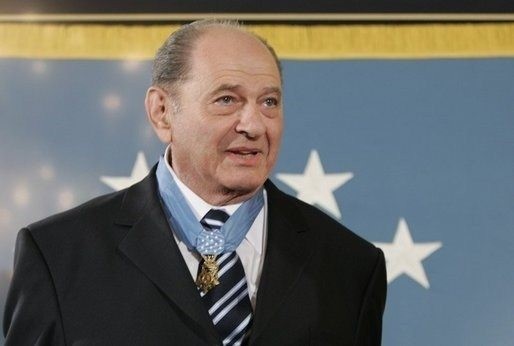
Cpl. Tibor Rubin was a remarkable individual whose story embodies resilience, courage, and selflessness. As a Holocaust survivor and Korean War hero, he demonstrated unwavering bravery and a deep commitment to his fellow soldiers. His tale serves as a powerful reminder of the indomitable human spirit and the importance of remembering and honoring those who have sacrificed so much for others.
Born in Hungary in 1929, Tibor Rubin experienced the horrors of the Holocaust firsthand. He and his family were captured by the Nazis and sent to the Mauthausen concentration camp. Despite enduring unimaginable suffering and loss, Rubin managed to survive. After the war, he immigrated to the United States, where he eventually enlisted in the U.S. Army.
During the Korean War, Rubin’s bravery and dedication to his comrades became evident. As a Jewish-American soldier, he faced discrimination and anti-Semitism within his own ranks. However, he never wavered in his commitment to his fellow soldiers or his duty. Rubin’s actions during the war would later earn him the Medal of Honor, the highest military decoration awarded in the United States.
Rubin’s heroic acts occurred during the Battle of Chipyong-ni in 1951. His company came under heavy attack from Chinese forces, resulting in numerous casualties and the capture of several American soldiers. Despite being wounded, Rubin managed to escape the enemy’s grasp and evaded capture for 24 hours. During that time, he returned to the battlefield to rescue wounded comrades and provide them with crucial medical assistance.
Rubin’s extraordinary bravery extended beyond his one-man rescue missions. As a prisoner of war in a Chinese prison camp, he defied his captors’ attempts to break his spirit and remained a beacon of hope for his fellow prisoners. Rubin went to great lengths to care for and protect his fellow soldiers, sharing his food rations, ensuring their survival, and providing much-needed morale and encouragement.
After the war, Rubin’s heroic actions were initially overlooked due to prejudice and bias. It was not until 2005, over 50 years after the Battle of Chipyong-ni, that his Medal of Honor was finally awarded. This recognition served not only to honor Rubin’s individual heroism but also to shed light on the countless other acts of bravery and sacrifice that often go unnoticed.
Cpl. Tibor Rubin’s story is important for several reasons. Firstly, it highlights the resilience of the human spirit in the face of unimaginable adversity. Surviving the Holocaust and then selflessly serving in the Korean War demonstrates Rubin’s remarkable strength and courage. His determination to help others, even in the most challenging circumstances, serves as an inspiration to people around the world.
Secondly, Rubin’s story serves as a reminder of the sacrifices made by Jewish-American soldiers throughout history. Despite facing discrimination and prejudice, Jewish soldiers have always risen above these challenges to serve their country with honor and distinction. Rubin’s story helps to counter stereotypes and showcase the valuable contributions of Jewish-Americans to the military and society as a whole.
Lastly, Cpl. Tibor Rubin’s recognition with the Medal of Honor highlights the importance of acknowledging and celebrating acts of bravery, regardless of the passage of time. His delayed recognition underscores the need to continually evaluate and reevaluate the contributions of individuals who have made a significant impact. Rubin’s story reminds us that heroism and selflessness deserve to be honored and remembered, even if recognition is delayed.
In conclusion, Cpl. Tibor Rubin’s story is a testament to the strength of the human spirit and the importance of recognizing acts of bravery and sacrifice. As a Holocaust survivor and Korean War hero, his journey from the depths of unimaginable suffering to the heights of military valor is both remarkable and inspiring. His story serves as a powerful reminder of the resilience of the human spirit, the perseverance in the face of adversity, and the significance of honoring those who have selflessly served their country.